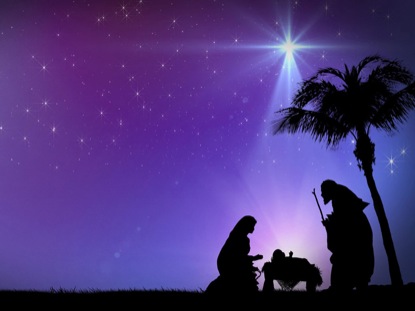The post you are about to read touches on the many celebrations of this season. Each one is extremely generalized and simplified through my own perspective and understanding. Please do not be offended if anything said here does not fit into your particular belief/path. It is not my intent to bring offense, but instead, to bring a general sense of Love and understanding to all. Be blessed. 🙂

YULE
The season of Yule, is an ancient pagan celebration which begins at the Winter Solstice and lasts through the New Year. The winter solstice (Dec. 21), —also known as Mother’s night—is recognized as the longest night of the year. From a seasonal perspective, it is truly a new year, a new beginning, as the days will now begin to lengthen. December 21 is also known as Mother’s night, because the great Mother (Earth) is reawakening and giving birth to new light and life. Spring will be coming soon. As this is the longest night, it is also a good time for silence and introspection, so that when the new year is born, it will be ripe with wisdom and positive potential.

Hanukkah
The Jewish celebration of Hanukkah, also known as the festival of lights, happens during this season and lasts for eight days. In 165 BC, a group of Judean revolutionaries reclaimed the temple in Jerusalem from current Greek/Syrian occupants. The Greeks had taken over the temple and built within it an alter to Zeus. Jewish traditions and worship of Jehovah were outlawed. The traditional story says that after the temple was recovered to God’s people, it would take several days to sanctify the holy place and make it clean (kosher) and rededicated to God. While the people restored the temple, the menorah, which only held enough oil to last one day, kept burning for eight days, until the work was done. Hanukkah is a celebration of reclaiming the promises and protection of the Divine. It is about recognizing the existence of miracles. It is about rededicating our bodies (our temples), to God’s service.

Christmas
For Christians, this is the season to celebrate the birth of the long-awaited messiah—the son of God. Throughout ancient Jewish texts, there was a prophesy that foretold of a man who would one day come and liberate the tribes of Judea. This man would be the pure and perfect sacrifice to replace all the old ways of animal offerings and Jewish law. Christmas is the celebration of the birth of Jesus of Nazareth, the Christ. He walked the earth for 33 years sharing the pure word of Love, faith, and forgiveness. He performed many miracles. He healed the crippled and dying, fed thousands of people with just a handful of food, calmed a storm, and raised a man from the dead, to name a few. He was executed by crucifixion , as a radical and an instigator. Followers of Christ believe that after His body lay in a stone tomb for three days, Jesus was resurrected and even visited his closest companions before ascending to Heaven. The celebration of Christ(mas), is the recognition of small miracles; such as the birth of a child, the Love of a friend, or the healing power of faith.

Bodhi Day
Finally, Bodhi Day is the recognition of Siddhartha’s enlightenment, or the birth of the Buddha. Here is the basic story: Siddhartha was the son of a king, around 500 BC, in India. He was given everything he would ever need. He had three palaces. He was married, and had a son. However, Siddhartha felt that despite his life of luxury, something was missing. His father had made sure that the prince would never be exposed to religious guilt or human suffering, so Siddhartha was protected, isolated, and sheltered for the first 29 years of his life. Then he began to wander away from the guarded palaces, where he discovered the sick, old, and dying. He began to seek out teachers of meditation and yoga in order to understand the purpose of suffering. Eventually, Siddhartha went off entirely on his own, begging for money in the streets so that he would understand things like destitution and hunger. At the age of 35, he sat down under a Bodhi tree and vowed not to rise until his seeking was satisfied. After 49 days, he attained Enlightenment and became the Buddha or “Awakened One”. The rest of his life was spent teaching the divine knowledge of mindful acceptance and peace that he had been given on that night. Traditional celebrations of Bodhi Day include special meals, meditation/study, and acts of kindness toward others.

Each of these celebrations can actually be boiled down to one thing: Coming out of darkness. The birth of optimism and the resurrection of faith after a period of waiting, longing, or suffering.
This is the season of hope. This is the time of year when we remember where we have been and look expectantly toward the light of tomorrow. In this winter season, I encourage you to spend some time in sacred darkness, prayer and introspection.
Perhaps this year has been a long, dark night for you. Maybe you have felt oppressed and are hoping for a miracle.
No matter what path you are on, there is a divine spark that lives within you. It has always been there. It is the signature of your Creator. Some call it soul. Maybe you call it your life energy or the Tao. I call it Love. Whatever celebration you enjoy this season, remember that we are all connected. Our similarities are so much more important than our differences.

Within each of us is everything we need to have a life of peace, comfort, and expectant joy.
We are the light.
Happy, blessed holidays to you all!


